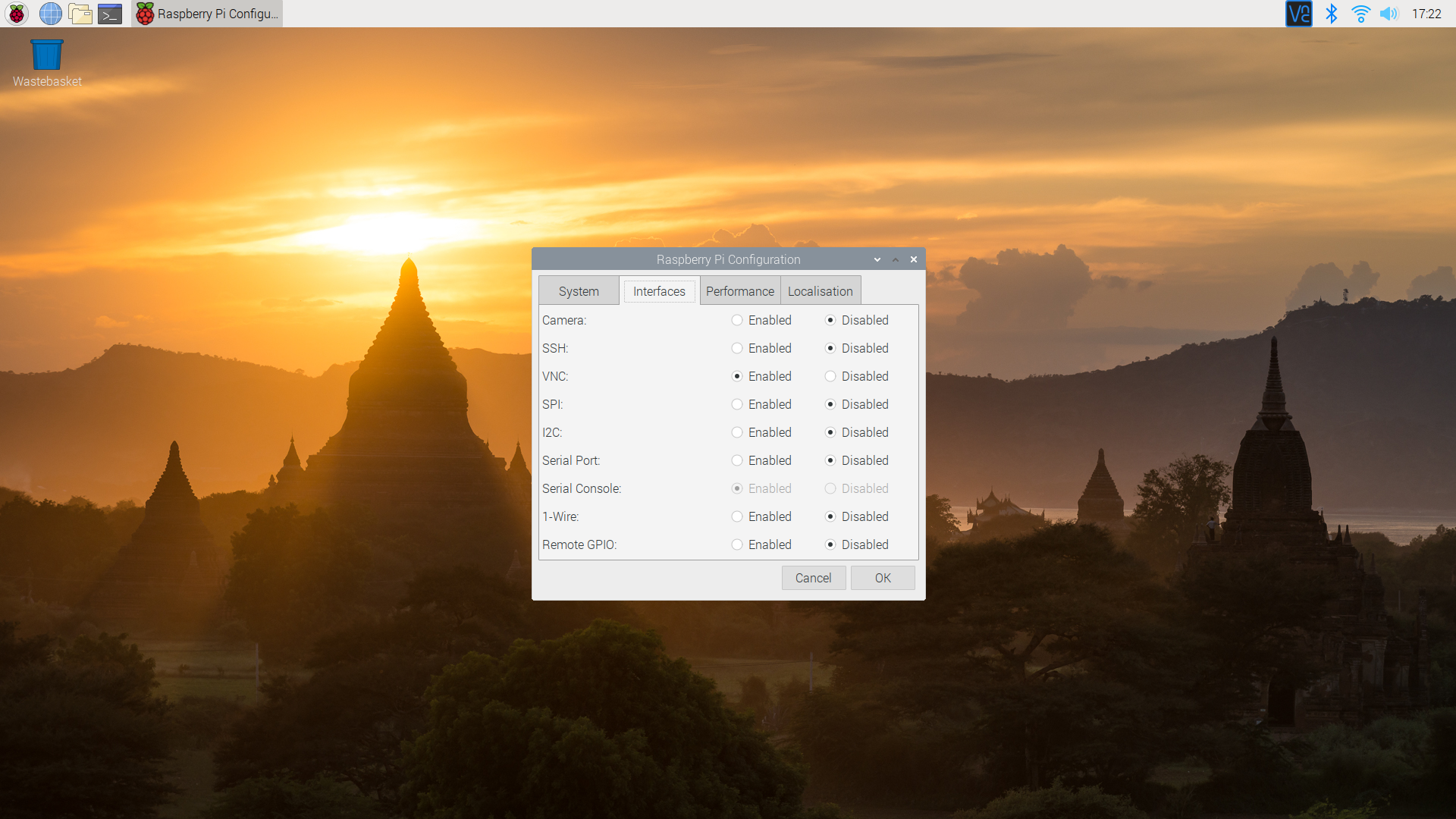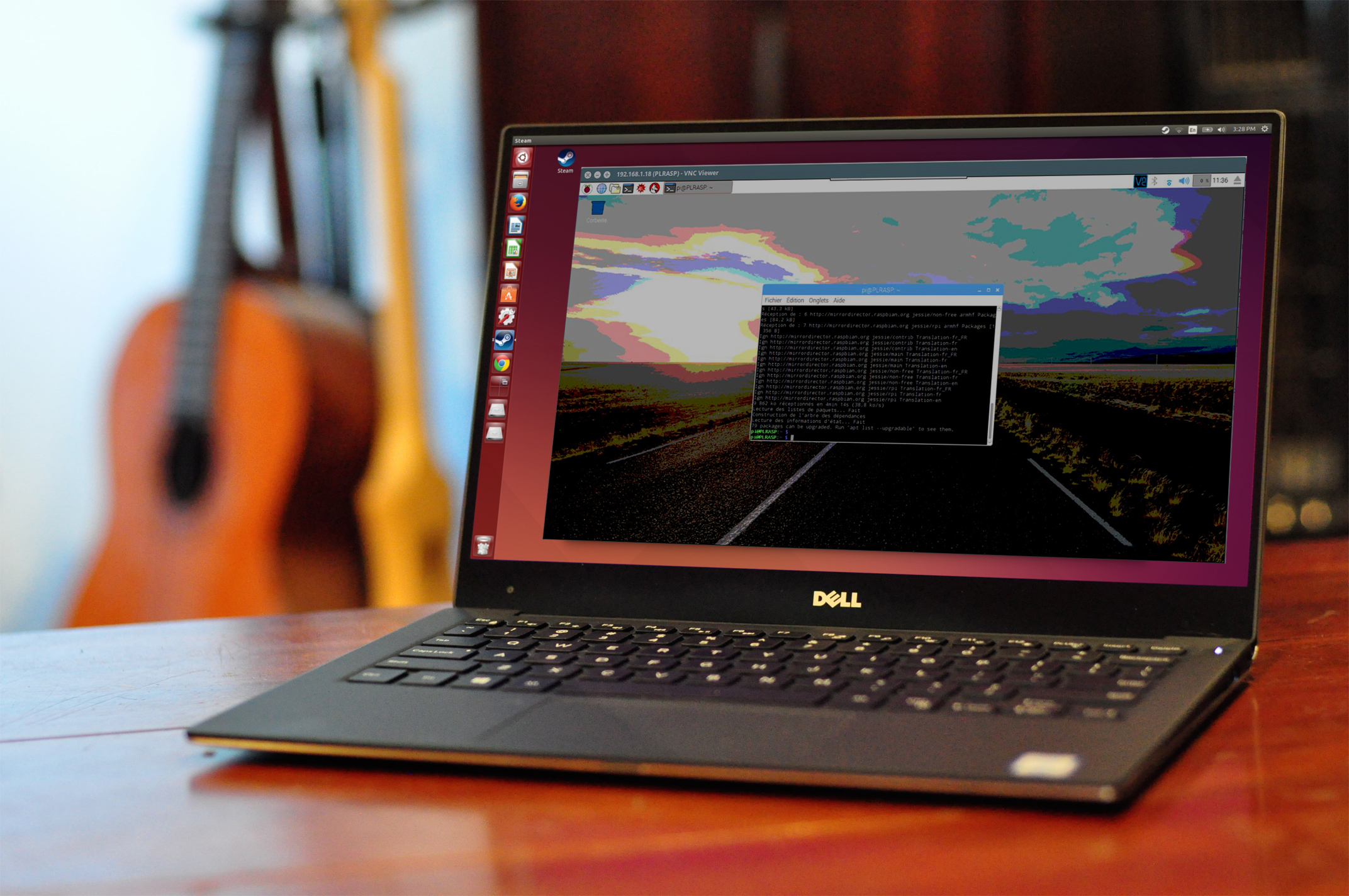Remote access has revolutionized the way we interact with technology, and VNC Cloud Raspberry Pi provides an exceptional solution for managing your devices from anywhere in the world. Whether you're a tech enthusiast exploring innovative projects, a professional overseeing multiple systems, or an individual seeking to streamline remote work, this guide will walk you through the intricacies of VNC Cloud. We'll delve into its functionalities, explore the step-by-step setup process, highlight its advantages, and share expert tips for optimizing your experience. By the end of this article, you'll have a comprehensive understanding of how VNC Cloud can enhance your Raspberry Pi projects.
VNC Cloud Raspberry Pi serves as a bridge to effortless remote control. By integrating cloud-based technology, users can establish secure connections to their Raspberry Pi devices from virtually any location with internet access. This capability opens the door to countless opportunities, ranging from troubleshooting issues remotely to automating tasks across diverse networks. With VNC Cloud, the possibilities are boundless.
This in-depth guide aims to equip you with all the essential knowledge required to begin your journey with VNC Cloud Raspberry Pi. From understanding the basics of VNC Cloud to uncovering advanced techniques that elevate your experience, this article covers every aspect. By the conclusion, you'll possess the expertise to configure and optimize VNC Cloud for your Raspberry Pi ventures.
Read also:Pepper0 Family The Ultimate Guide To Their Impactful Journey And Achievements
Table of Contents
- What is VNC Cloud?
- Raspberry Pi Overview
- Advantages of Using VNC Cloud with Raspberry Pi
Setup Process
- Maximizing Performance
- Ensuring Security
- Troubleshooting Solutions
- Practical Applications
- Comparing VNC Cloud with Other Tools
- Conclusion
What is VNC Cloud?
VNC Cloud represents a cutting-edge, cloud-based service that enables users to connect to remote devices securely and effortlessly. It removes the complexities associated with traditional network configurations, such as port forwarding or static IP addresses, by routing connections through the cloud. This feature makes VNC Cloud an ideal choice for individuals who wish to access their Raspberry Pi devices from anywhere without the hassle of intricate network setups.
The service operates by establishing a secure tunnel between the VNC Server installed on the Raspberry Pi and the VNC Viewer on the client device. This tunnel ensures the safe and efficient transmission of data, even under challenging or inconsistent internet conditions. With VNC Cloud, users can enjoy a seamless and dependable remote access experience while maintaining the highest standards of security.
VNC Cloud proves especially advantageous for Raspberry Pi users due to its ability to simplify the process of connecting to devices remotely. Whether you're managing a home automation system, operating a server, or developing software, VNC Cloud empowers you to remain connected and productive at all times.
Raspberry Pi Overview
Raspberry Pi refers to a series of compact single-board computers developed by the Raspberry Pi Foundation. These devices have gained widespread popularity in educational settings, hobbyist projects, and professional applications, thanks to their affordability, versatility, and user-friendly design. Raspberry Pi models are equipped with an array of features, including USB ports, HDMI outputs, and GPIO pins, making them suitable for a broad spectrum of projects.
Raspberry Pi devices operate on Linux-based operating systems, such as Raspberry Pi OS (formerly known as Raspbian), which provide a robust platform for software development and experimentation. Additionally, these devices are highly customizable, enabling users to install various applications and services tailored to their specific needs.
A notable advantage of Raspberry Pi is its capability to function as a headless device, meaning it can operate effectively without a monitor, keyboard, or mouse. This feature makes it an excellent fit for remote access scenarios, where users can manage their devices using another computer or mobile device. VNC Cloud enhances this functionality by offering a secure and intuitive method for accessing Raspberry Pi devices remotely.
Read also:Brad Paisley Wife And Kids A Closer Look At The Country Stars Family Life
Advantages of Using VNC Cloud with Raspberry Pi
Leveraging VNC Cloud with Raspberry Pi offers numerous benefits that make it a top choice for remote access. Below are some of the key advantages:
- Simplified Setup: VNC Cloud streamlines the configuration process by automatically handling network complexities. This allows you to start using it without requiring advanced networking expertise.
- Secure Connections: VNC Cloud utilizes end-to-end encryption to safeguard your data during transmission. This is crucial when accessing confidential information or managing critical systems.
- Device Compatibility: VNC Cloud supports a wide array of devices and operating systems, including Windows, macOS, Linux, Android, and iOS. This flexibility enables you to access your Raspberry Pi from virtually any device with internet access.
- Reliable Performance: The cloud-based architecture of VNC Cloud ensures stable and consistent performance, even in demanding network environments. This is achieved through sophisticated routing algorithms and optimized data transfer protocols.
- Cost-Effective: VNC Cloud offers both free and paid plans, making it accessible to users with varying budgets. The free plan provides ample features for most personal and small-scale projects, while the paid plans include additional benefits for more intensive use cases.
These advantages highlight why VNC Cloud is a compelling option for Raspberry Pi users seeking a dependable and secure remote access solution.
Setup Process
Configuring VNC Cloud on your Raspberry Pi involves a series of straightforward steps. Below, we'll guide you through the process to ensure a quick and efficient setup.
Installing VNC Server on Raspberry Pi
The initial step is to install the VNC Server software on your Raspberry Pi. Follow these instructions:
- Update your Raspberry Pi's software by executing the following commands in the terminal:
sudo apt updatesudo apt upgrade - Install the RealVNC Server by running:
sudo apt install realvnc-vnc-server realvnc-vnc-viewer - Once the installation is complete, initiate the VNC Server service:
sudo systemctl start vncserver-x11-serviced - Enable the VNC Server to start automatically during boot:
sudo systemctl enable vncserver-x11-serviced
With the VNC Server installed, your Raspberry Pi is now prepared to connect to VNC Cloud.
Connecting to VNC Cloud
To establish a connection between your Raspberry Pi and VNC Cloud, follow these steps:
- Launch the Raspberry Pi Configuration tool:
sudo raspi-config - Select "Interfacing Options" and enable VNC.
- Log in to your VNC Cloud account via the VNC Server settings page.
- Upon successful connection, your Raspberry Pi will appear in your VNC Cloud dashboard, ready for remote access.
By completing these steps, you'll have successfully configured VNC Cloud on your Raspberry Pi. You can now access your device from any location using the VNC Viewer application.
Maximizing Performance
To ensure an optimal experience when utilizing VNC Cloud with Raspberry Pi, consider the following optimization strategies:
- Adjust Screen Resolution: Lowering the screen resolution can significantly enhance performance, particularly on slower internet connections. You can configure the resolution within the VNC Server settings.
- Enable Compression: Activating compression reduces the volume of data transmitted, leading to faster connection speeds. This feature can be adjusted in the VNC Viewer settings.
- Limit Color Depth: Reducing the color depth can also improve performance, though it may slightly impact image quality. This adjustment can make a notable difference in connection speed.
- Use Wired Connections: Whenever feasible, opt for a wired Ethernet connection instead of Wi-Fi to ensure a more stable and faster connection.
Implementing these optimizations can help you achieve smoother and more responsive remote access to your Raspberry Pi devices.
Ensuring Security
Security is a critical component of remote access, and VNC Cloud incorporates several features to protect your data and devices. However, there are additional measures you can take to enhance security:
- Use Strong Passwords: Ensure that your VNC Cloud account and Raspberry Pi login credentials are robust and unique. Avoid using passwords that are easily guessable.
- Enable Two-Factor Authentication (2FA): Adding an extra layer of security by enabling 2FA on your VNC Cloud account can considerably reduce the risk of unauthorized access.
- Regularly Update Software: Keep your Raspberry Pi's operating system and VNC Server software updated to safeguard against vulnerabilities and exploits.
- Limit Access: Restrict access to your VNC Cloud account and Raspberry Pi devices to trusted users only. Avoid sharing login credentials with others.
By adhering to these security best practices, you can effectively protect your devices and data when using VNC Cloud Raspberry Pi.
Troubleshooting Solutions
While VNC Cloud is generally reliable, you may occasionally encounter issues. Below are some common problems and their resolutions:
- Connection Issues: If you're unable to connect to your Raspberry Pi, confirm that the VNC Server is operational and that your VNC Cloud account is correctly configured. Check your internet connection and consider restarting the VNC Server service.
- Slow Performance: If the connection is sluggish, try modifying the screen resolution, enabling compression, or using a wired connection. Additionally, ensure that your internet speed is adequate for remote access.
- Authentication Problems: If you're experiencing login difficulties, verify that your credentials are accurate and that two-factor authentication is properly set up. Reset your password if necessary.
These troubleshooting tips can assist you in resolving common issues and maintaining a seamless remote access experience with VNC Cloud Raspberry Pi.
Practical Applications
VNC Cloud Raspberry Pi finds application in various real-world scenarios across different domains. Here are some examples:
- Home Automation: Utilize VNC Cloud to remotely monitor and control smart home devices connected to your Raspberry Pi, enhancing convenience and efficiency.
- Remote Work: Access your Raspberry Pi-based development environment from any location, enabling you to work on projects without being physically present.
- Education: Teachers and students can employ VNC Cloud to collaborate on projects, share resources, and conduct remote learning sessions, fostering interactive learning experiences.
- Small Business: Businesses can harness VNC Cloud to manage servers, automate tasks, and provide remote support to clients, improving operational efficiency.
These applications underscore the versatility and potential of VNC Cloud Raspberry Pi in enhancing productivity and convenience.
Comparing VNC Cloud with Other Tools
Although VNC Cloud is a potent tool for remote access, other solutions like SSH, TeamViewer, and NoMachine are also available. Below is a comparison of VNC Cloud with these alternatives:
- SSH: SSH is a command-line tool that offers secure access to remote devices but lacks graphical interface support. Conversely, VNC Cloud provides full graphical access, making it more suitable for tasks requiring a GUI.
- TeamViewer: TeamViewer is another popular remote access tool that provides functionality similar to VNC Cloud. However, VNC Cloud is specifically designed for Linux-based systems like Raspberry Pi, delivering a more optimized experience.
- NoMachine: NoMachine is renowned for its high-performance remote access capabilities but may demand more advanced configuration compared to VNC Cloud's user-friendly setup process.
Selecting the appropriate tool depends on your specific requirements and preferences


